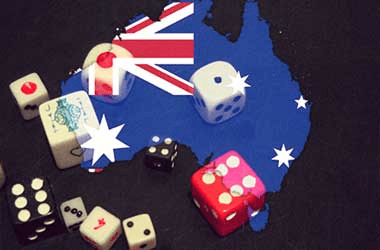How Do Betting Companies Set Odds
Sports betting companies make money by collecting a commission on losing bets, which is often called the vigorish. Vig, or vigorish, is the cut or amount charged by a sportsbook for taking a bet, also known as juice in slang terms. The sportsbook only collects the vig if the bettor loses the wager. For example, a point spread is often listed. The betting agencies calculate odds based on the bets placed. They typically keep around 5% and pay the rest out. So a lot of money placed on a particular outcome will reduce the payout for that outcome. The key advantage bettors have is that they do not have to wager on every game, but can pick and choose wagering opportunities. The bookmaker however, puts up a number on hundreds of events each and every week. In a typical NFL week, there are 14 to 15 games for you to choose from and there are even multiple betting opportunities on each game.
It's a simple enough question and one every bookie gets asked. How do we set the odds on Inter not losing at home again or Wigan sneaking victory over title-chasing Arsenal. Well it goes a little like this.
There are a team of people employed by any bookmaker, usually referred to as Traders, Risk Analysts or Odds Compilers. Their job is to produce odds that closely represent the chance of an occurrence.
It’s a tough job to account for all the variables in any event. If you take the chance of Manchester United winning at home for example the trader has to account for the form of the teams, injuries to key players, influence of the crowd, the referee and many others.
In addition to the chances of a team winning, they have to account for the money that is likely to be placed. In the Manchester United example, most people would back the Red Devils to to win at Old Trafford and therefore the odds will be shorter than perhaps the precise chances of victory.
Also like any other business a bookmaker has to make money so the Trader will add a small percentage to a ‘book’ in order to generate this profit. In a match between two evenly matched teams on a neutral ground the odds might look something like the following:
7/4 (2.75) | Team A | 36.36% chance of winning |
13/5 (3.60) | Draw | 27.7% chance of winning |
7/4 (2.75) | Team B | 36.36% chance of winning |
This adds to approximately 100% and trading books like this, the bookmaker should break even over a period of time. So what they have to do is skew the odds slightly in their favour:
How Do Betting Companies Set Odds Football

6/4 (2.50) | Team A | 40% chance of winning |
12/5 (3.40) | Draw | 29.4% chance of winning |
6/4 (2.50) | Team B | 40% chance of winning |
Odds Meaning Betting
Now the bookmaker has a 9.4% profit margin and should make a profit over time although to the punter of course it’s all about making a profit on the game itself! A bookmaker will trade a market at anywhere between 101 and 120% profit depending on the market and competitor activity.
That means that in a perfect world (which doesn’t exist) the bookmaker should make between £1 and £20 for every £100 that are gambled on the market. What happens in reality however is that most money is gambled on the favourites and it’s when the favourites fail to win, that the bookmakers make their money.
David Mole is Goal.com's Betting and Odds Expert. He has previously worked for Betfred, Victor Chandler, William Hill and Totesport.
How Sports Betting Odds Work
Have you got a question for our betting expert? We'll pick out the best ones every week.